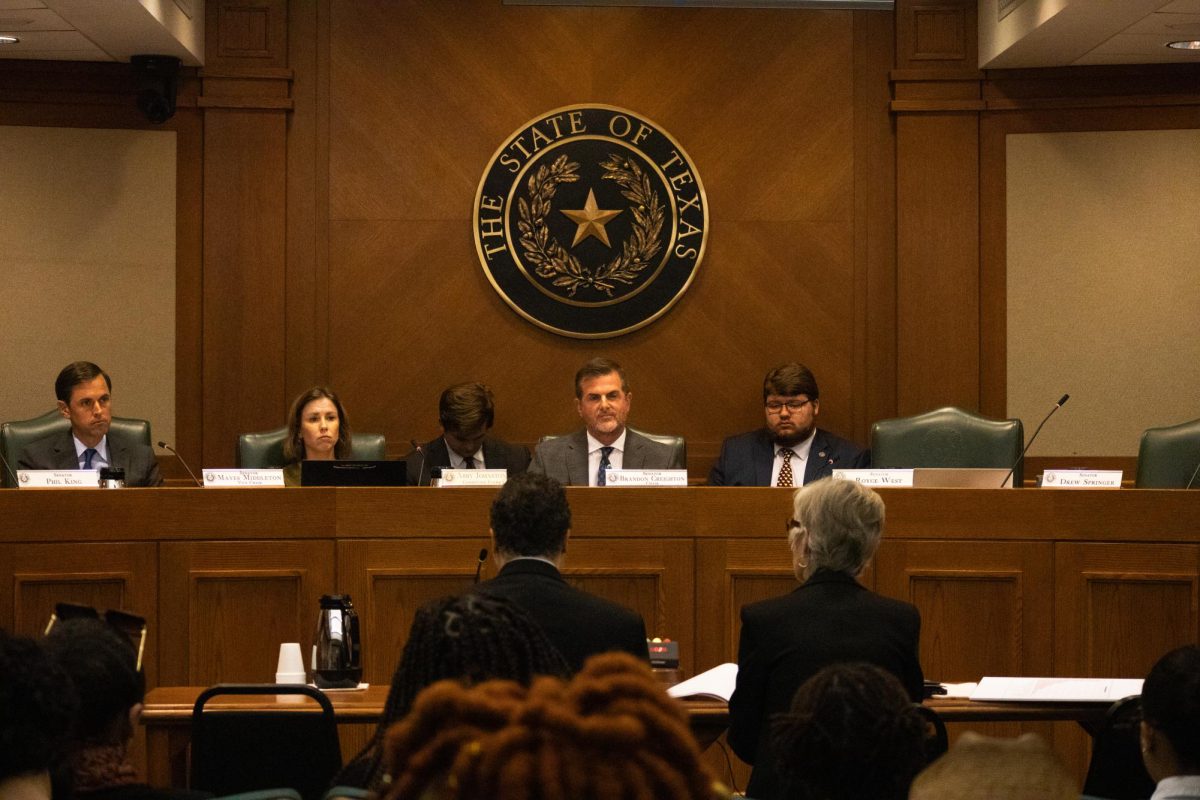After a drunken driver killed one of his constituents in 2006, Rep. Bill Callegari, R-Katy, now wants all those convicted of driving while intoxicated to undergo a Breathalyzer test before they get behind the wheel — a proposal which expands the existing measure to first-time offenders.
In 2006, UT alumnus Todd Levin and his girlfriend were struck by a drunken driver and died. In their honor, Callegari authored the Todd Levin Memorial Act, which he and Levin’s parents discussed during a public hearing Tuesday before the House Committee on Criminal Jurisprudence.
Currently, lawmakers in eight states have mandated the use of ignition interlock devices for all drivers convicted of DWIs. An ignition interlock device consists of a Breathalyzer that is connected to the ignition of a car. If a driver is over the legal limit of .08 percent, the car’s engine will not start.
“Todd was a constituent and a family friend,” Callegari said. “I was shocked and saddened to learn of his death caused by a drunk driver. Since that time, I have been inspired by the dedication of Carol and Stu Levin, Todd’s parents, to work toward the goal of eliminating the problem of drunk driving that plagues our state.”
Under current law, first-time DWI offenders in Texas are not required to have an ignition interlock device installed in their vehicles. The device is required for second- and third-time offenders or those who have a blood alcohol concentration level of 0.15 percent or more at the time of their arrest.
“Repeat drunk drivers make up a significant percentage of the drunk driving problem on Texas roads,” Callegari said.
Nearly one-third of those convicted of drunken driving are repeat offenders, according to the National Highway Traffic Safety Administration.
Texas ranks 45th in the nation in DUI-related traffic deaths, according to Mothers Against Drunk Driving. The group advocated for the legislation during the last legislative session.
Carol Levin, who is now a member of MADD, said the bill should be a high priority for lawmakers because of Texas’ high drinking-and-driving fatalities figures.
“This initiative is a way to prevent drinking-and-driving second offenses rather than strictly punishing those who have been convicted with their first offense,” Stu Levin said.
Matt Simpson, a policy strategist for the ACLU of Texas, said he disagrees with Callegari’s bill because there are much better ways to treat the problem than installing ignition interlock systems.
“Education like Alcoholics Anonymous is the best way to deal with DWI offenders because it addresses the underlying issues of treating alcoholism — which is something most offenders struggle with,” Simpson said.
He also said ignition interlock systems are difficult to enforce because they don’t test if the driver is breathing into the device. Some drunken drivers will ask sober passengers and children to blow into the system on the driver’s behalf, allowing the drunken driver to continue on his way.

















